Maximize HVAC Efficiency
How to Keep Cozy & Save Cash:
 Maximize Your HVAC Efficiency This Winter
Maximize Your HVAC Efficiency This Winter
Winter is coming! But before you stockpile blankets and prepare to hibernate, let’s talk about how you can keep your home toasty without sending your heating bill through the roof. There’s a lot you can do to ensure your HVAC system runs efficiently (and saves you money), but we’ll also sprinkle in a few tips on how to keep warm. So, grab some hot cocoa, and let’s dive in!
Tune-Up Time
Just like your car needs a regular oil change, your HVAC system needs a seasonal check-up. Regular maintenance will keep your HVAC system running at its peak efficiency. Our HVAC tune up team can spot issues before they turn into expensive repairs. They ensure everything is running like a well-oiled machine.
Pro Tip: Schedule an appointment early in the season before the first real cold snap hits. This helps you avoid emergency service calls when everyone else is in a rush to get their furnace back up and running!
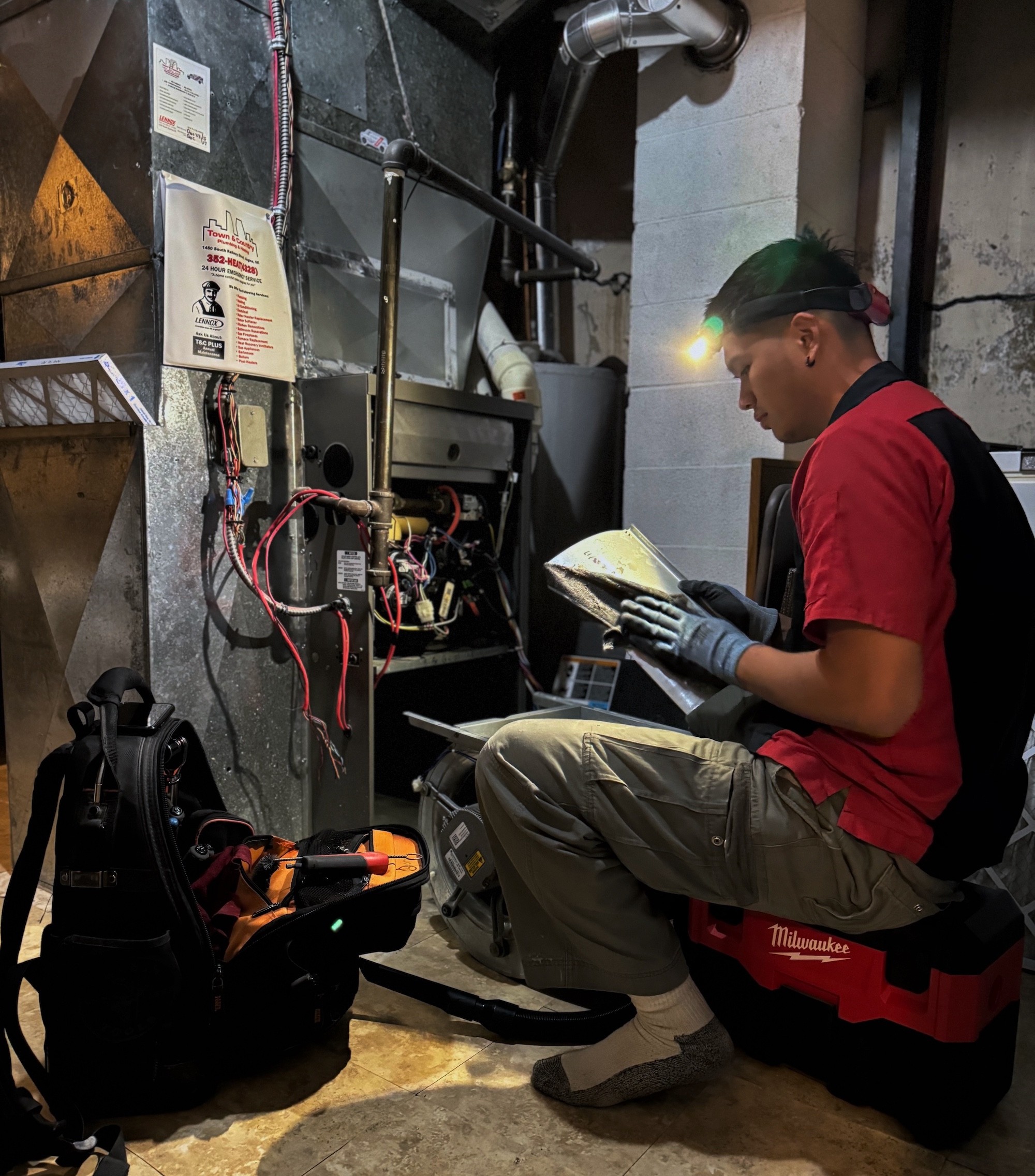
Change that Filter
A dirty filter makes your HVAC system work harder, which means more energy and higher bills. Aim to swap out your filter every 1-2 months during the winter. You’ll enjoy better airflow, cleaner indoor air, and a more efficient system.
Bonus: You’ll also notice less dusting required in your home. YAY!

Let’s Talk Thermostats
Want to lower your heating bill? The simplest way is to set your thermostat temperature a little bit lower, especially when you are away from home or when you are sleeping. Don’t have a programmable thermostat? Give us a call. We offer a variety of options and our team can professionally install it for you.
Imagine this: while you’re out building snowmen or watching movies in bed, your thermostat adjusts automatically. Set it to warm up before you get home or wake up, so you stay comfy without wasting energy. Going to be home a little sooner than your usual programming, use an app on your phone to boost the temperature in your home before you get there. Looking for a smart thermostat? Check out our Daikin options: Click here.
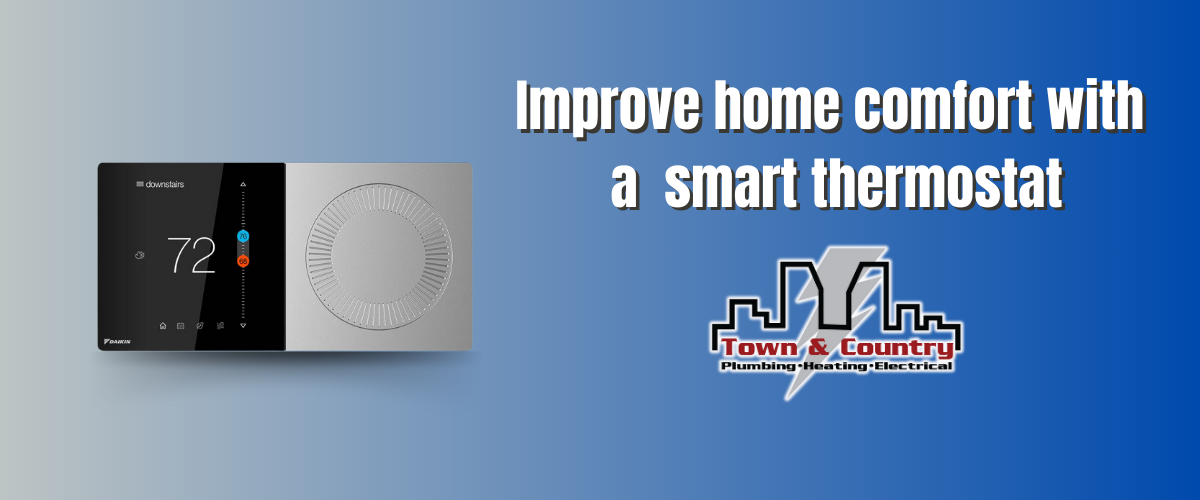
Seal it so you don’t feel it!
Drafts are like little thieves sneaking heat out of your home. Check your windows, doors, and even electrical outlets for drafts. You can use weatherstripping, caulking, or door sweeps to seal up these areas. Not only will your home stay warmer, but your HVAC system won’t have to work overtime to replace that lost heat.
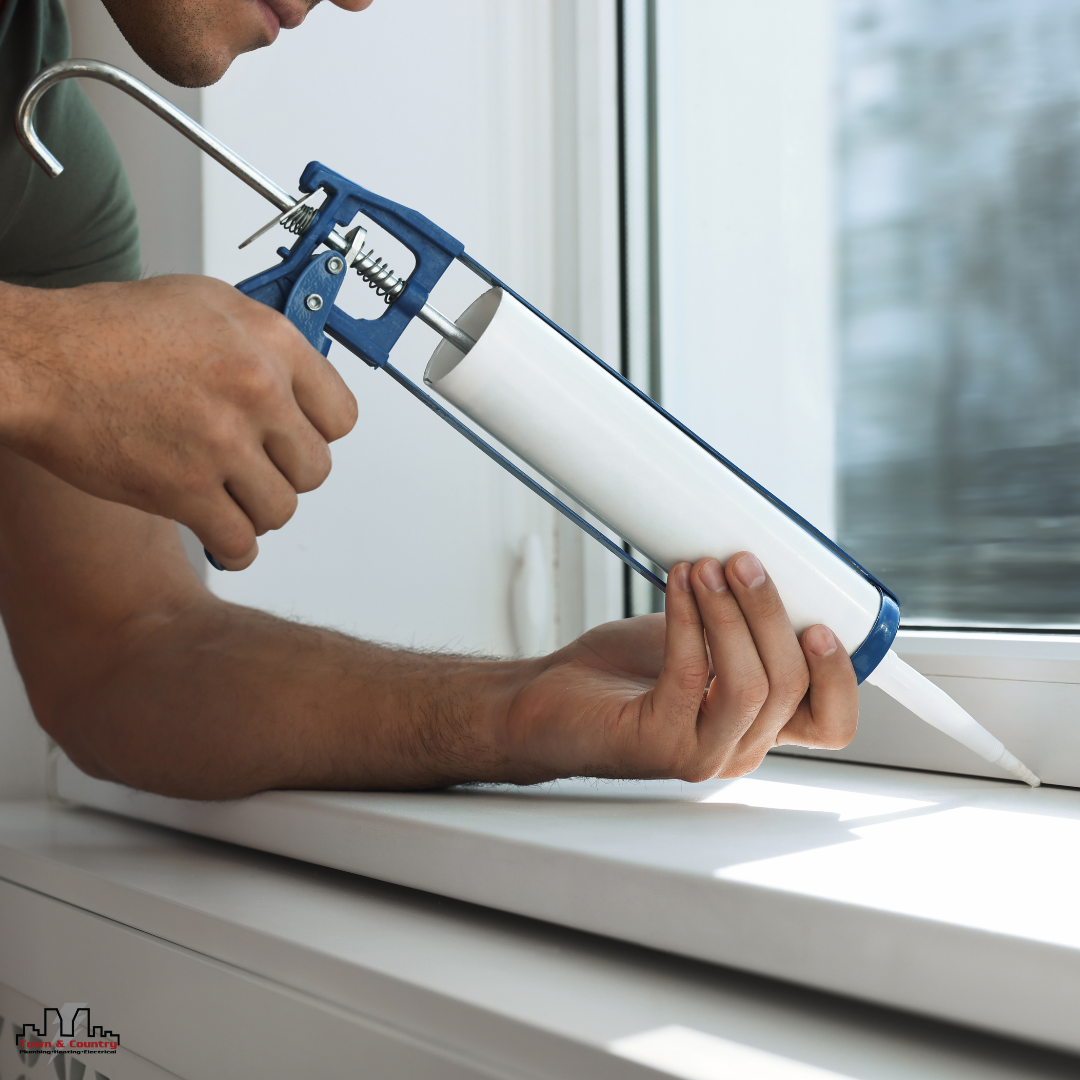
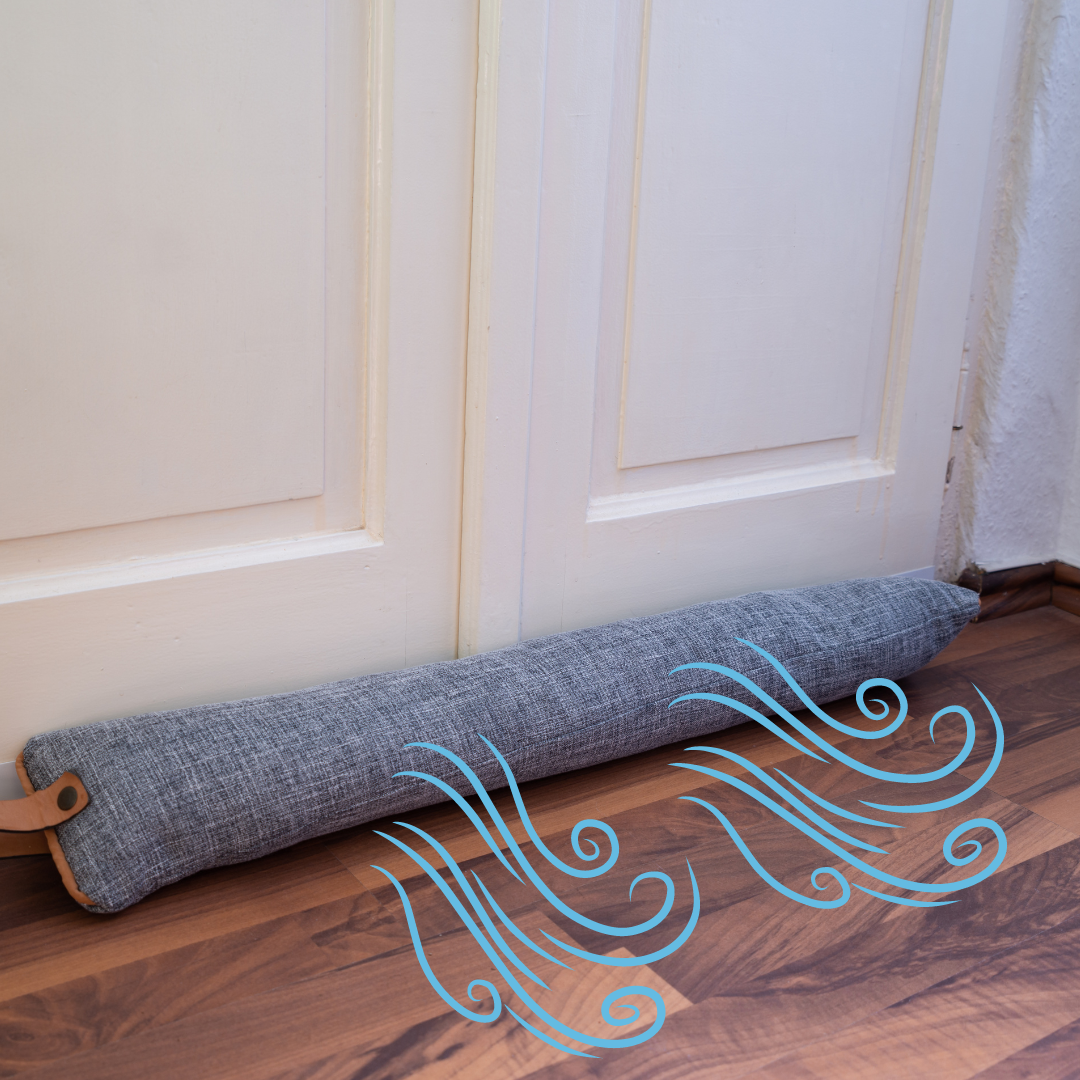
Embrace the Sun
Sunny winter days can be your best friend. Open up your curtains or blinds during the day to let the sunshine in. It’s free heat! And when the sun goes down, close your curtains to help trap the warmth inside.

Zone your Home
If you’ve got a big house or rooms that don’t get much use, consider zoning for your HVAC system. This lets you control the temperature in different areas of your home individually, so you’re not heating rooms that no one is using. Efficiency, meet comfort!
Zoning also allows for adjustable comfort. Maybe you like your bedroom warmer than your teenage son. Set the zones and everyone can be comfortable.
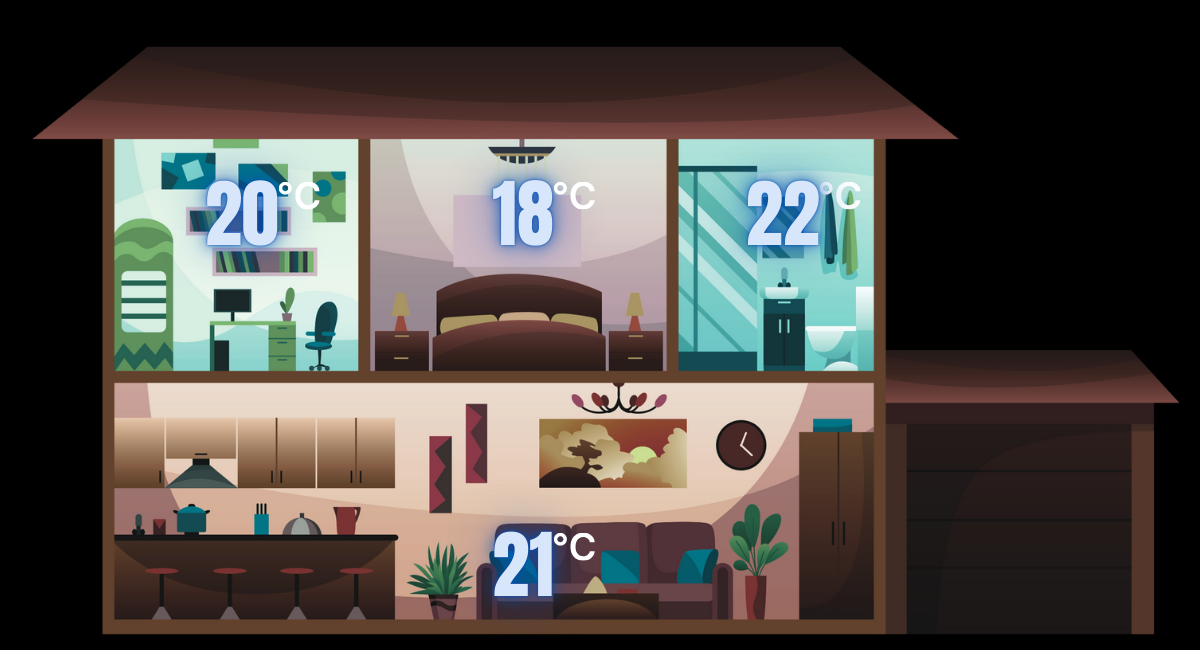
The Humidifier Hack
Cold air tends to be dry, which can make your home feel chillier than it actually is. A whole-home humidifier can help by adding moisture to the air, making it feel warmer. Increasing the relative humidity in your home will allow you to lower your thermostat setting and still have the same comfort level. As an added bonus that extra humidity is great for your skin and sinuses and you will appreciate it during our dry winter months. Win-win!
Looking for a humidifier upgrade, we recommend Clean Comfort Indoor Air Essentials. Click for details.
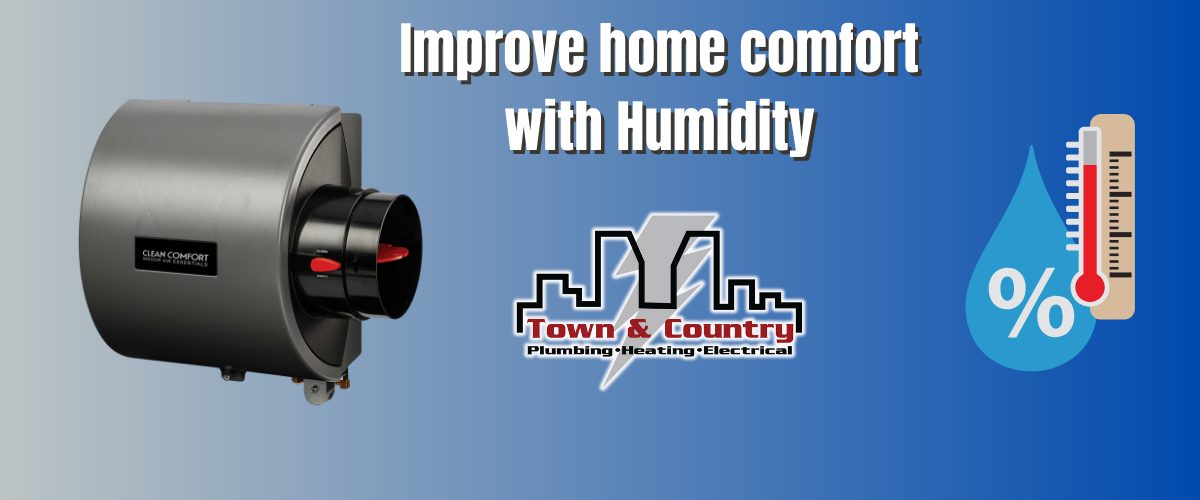
Insulate, Insulate, Insulate
Insulation is your secret weapon for a warm home. Check your attic, walls, and crawl spaces to ensure you’ve got enough insulation. Upgrading or adding insulation can drastically improve your home’s heat retention and reduce the workload on your HVAC system. It not only helps keep your home warm but it will also help keep your home cool in the summer.
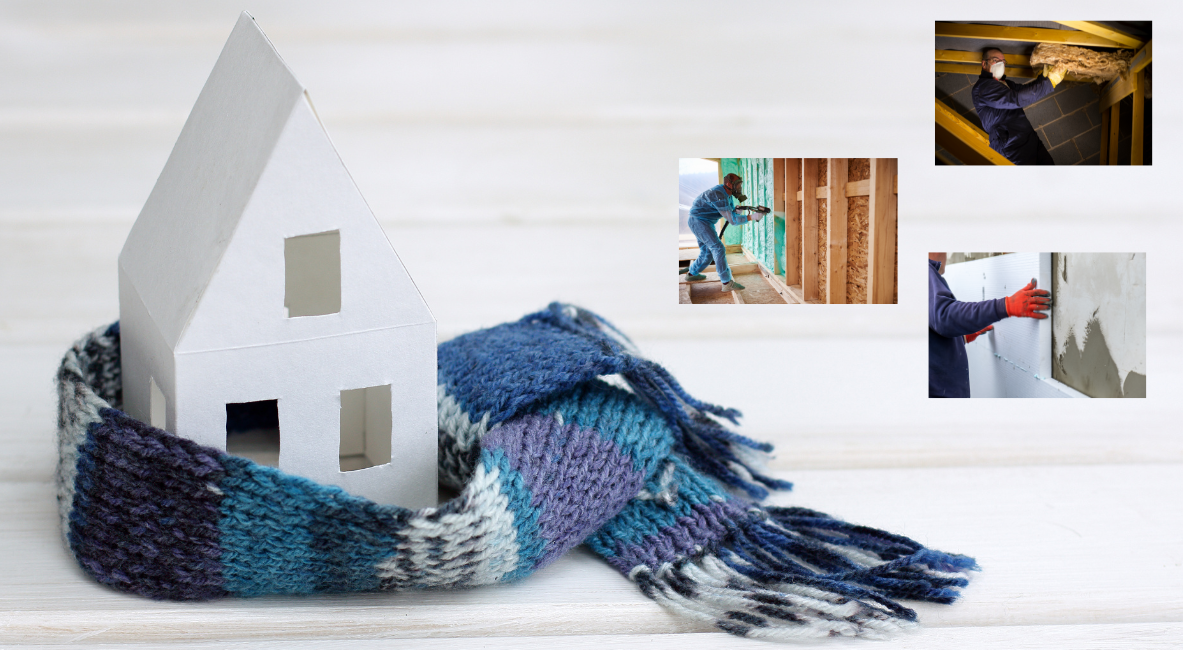
Invest in your HVAC System
Upgrading to a high-efficiency HVAC system can be a game-changer. Modern systems are designed to use less energy while providing the same level of comfort and, of course, they come with some pretty sweet warranties (like the ones we offer with our Daikin equipment. Plus, over time, the savings on your utility bills make it a worthwhile investment. SaskEnergy Rebates are currently available for furnace replacements when upgrading to a high efficiency model. Get in touch today for a free quote from our professional team.
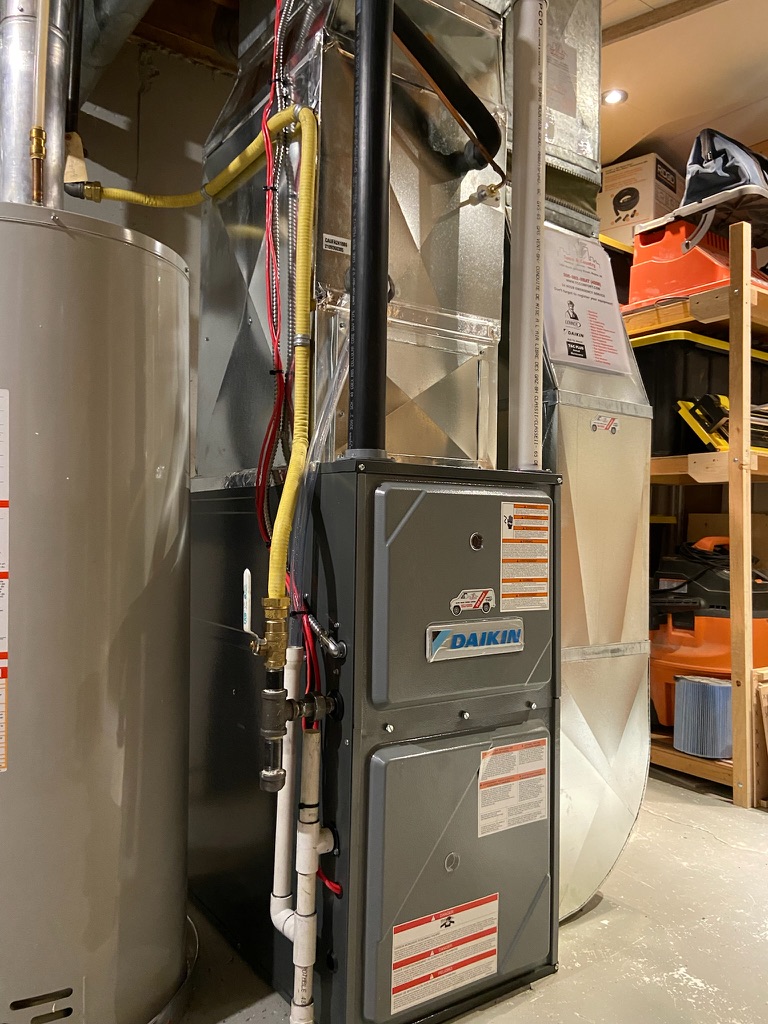
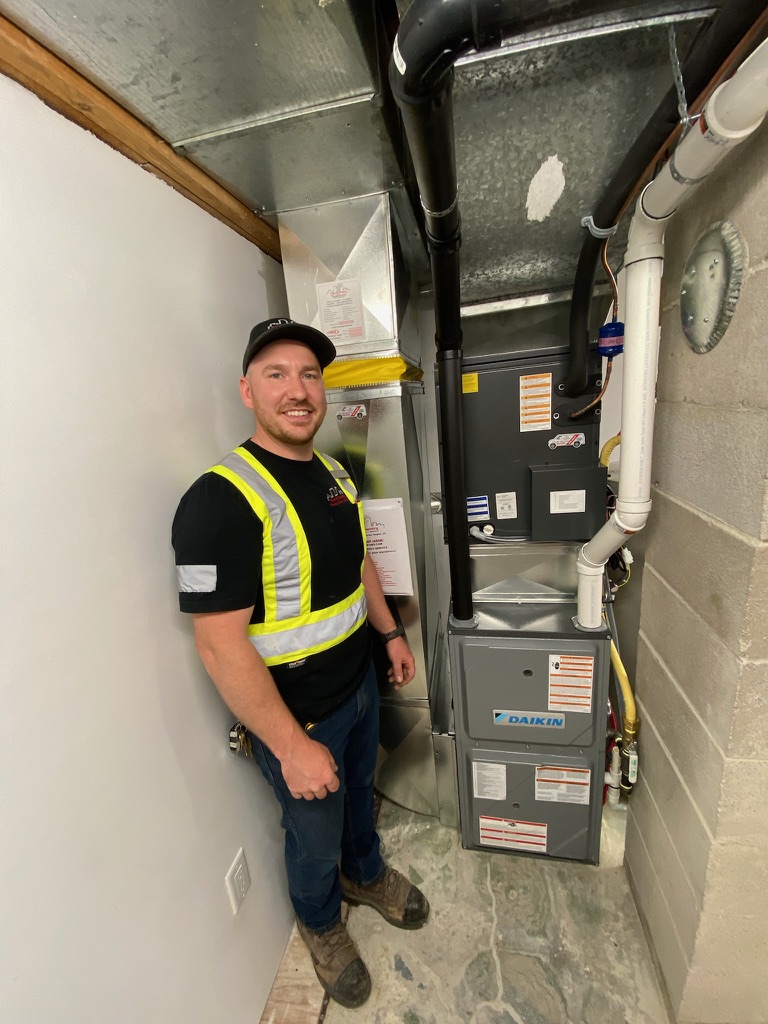
Stay Cozy and Enjoy an Efficient HVAC System
Winter doesn’t have to mean skyrocketing energy bills. With a few easy changes, you can keep your home warm and your HVAC system running smoothly. Whether it’s a little TLC for your current system, smart thermostat tricks, or sealing up drafts, these tips will help you stay cozy while saving cash.
Got questions about your HVAC system or need a furnace tune-up? Give us a call—we’re here to help!
Now, go ahead and comfortably enjoy winter.
HVAC Maintenance
HVAC Tune-Ups
First of all: What does HVAC stand for?
HVAC is an acronym for Heating Ventilation Air Conditioning. It’s a term that is used to describe the complete system that is used to heat or cool your home or business while also ensuring the air you breathe is of high quality.
A typical home in Regina will have several components to the HVAC system. These will most likely include:
- Heating Unit: This is typically a furnace but may be a boiler.
- Cooling Unit: This is typically an air conditioner but may be a heat pump.
- Ventilation Elements:
- Ductwork: Channels that distribute air.
- Air Handler: Houses the blower that drives the air through the ducts.
- Registers and Vents: This is where air flow happens in each room.
4. Thermostat:
The brains of the HVAC system. This is where the temperature is set. Thermostats range from very simple devices to complex smart units that can even learn from your habits or presence.
5. Air Filters:
Filters help keep our indoor air perfect by capturing dust and pollens or other particles like pet hair.
6. Humidifier:
These units act to control our indoor humidity levels. During our dry winters humidity is added. Adjusting humidity in a home can greatly increase the comfort level.
7. HRV Unit:
Heat and Energy Recovery Ventilator These devices, more common in newer homes, make your home healthier and cleaner by continuously replacing stale indoor air with fresh outdoor air.
8. Radiators:
Some homes that use a boiler system for heating will have radiators located along walls in every room. When the radiators heat up they radiate warmth outward to heat the room.
As you can see that’s a pretty big list of equipment keeping your home comfortable and your indoor air perfect. As with any mechanical equipment, your HVAC system does require
Regular Maintenance
to keep it operating smoothly.
Benefits of HVAC Tune-Ups:
- Enhanced Efficiency: Cleaning, replacing filters, lubricating moving parts and ensuring proper airflow all add up to a more efficient machine which helps you save money on your energy bills
- Extended Lifespan: Your HVAC system is a big investment. Improve the lifespan of that equipment with regular maintenance.
- Better Air: Air quality is best when your HVAC system is running properly.
- Reduced Repairs: Preventative maintenance goes a long way in catching repairs early and preventing escalating costs.
- Improved Comfort: A well maintained system will provide you with the most comfort.
- Safety: Checking on electrical connections and gas lines regularly can reduce the risk of hazards like gas leaks, electrical fires, and carbon monoxide poisoning.
- Warranty: HVAC maintenance is typically a requirement for warranty. Failure to maintain a system properly can void warranty.
- Reducing your environmental impact. A well tuned HVAC system uses less energy.
T&C Air Conditioner Precision Tune-Up
- Check operation of thermostat, including calibration
- Test for refrigerant shortage
- Wash outdoor condensing unit
- Balance air flow for air conditioning
- Perform temperature drop at indoor coil
- Clean condensate lines and test operation
- Inspect compressor contacts
- Clean or replace standard filters
- Lubricate all moving parts
- Monitor start capacitor and potential relay operation
- Close down humidifier operation
- Measure and record amperage draw on compressor
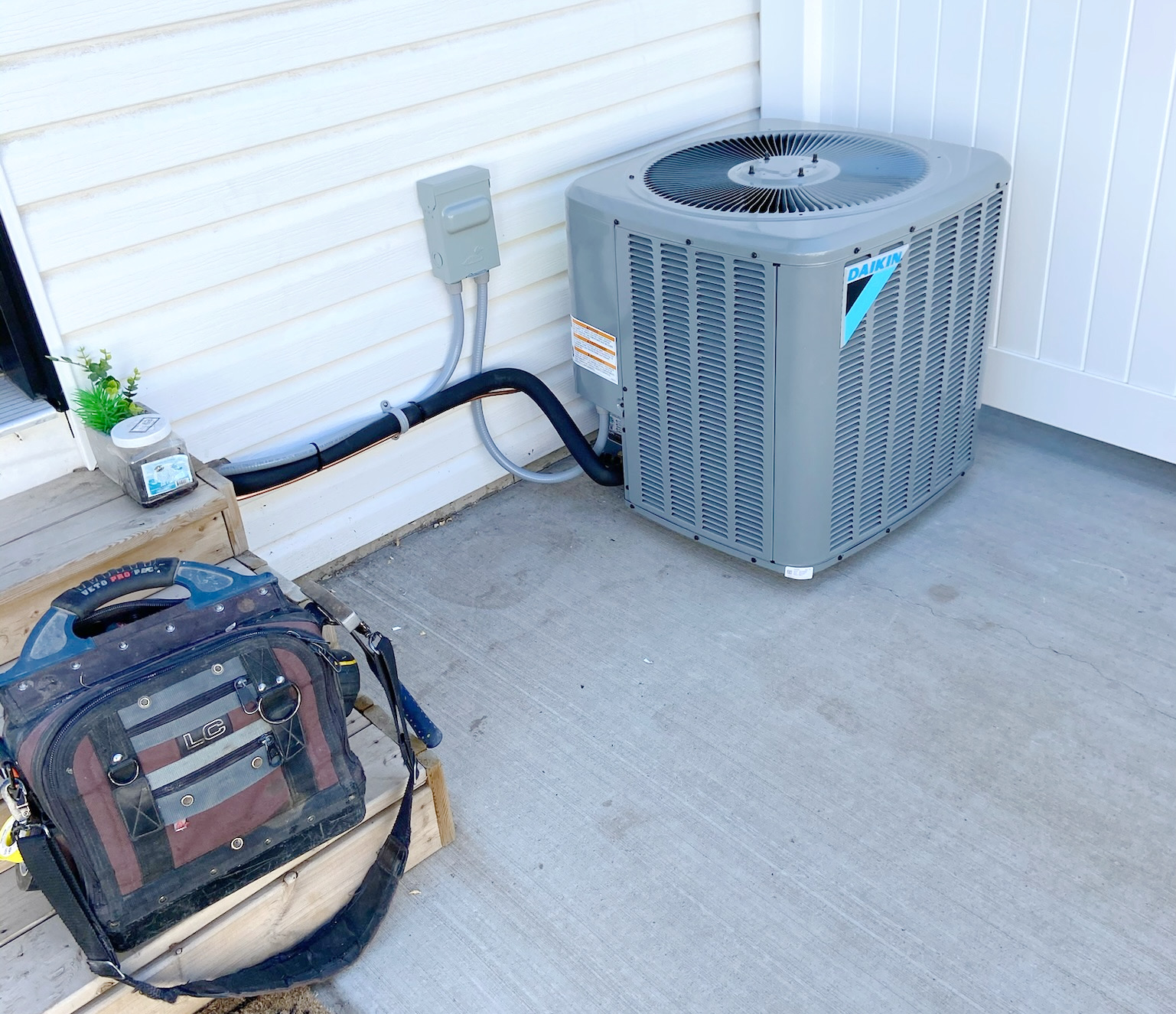
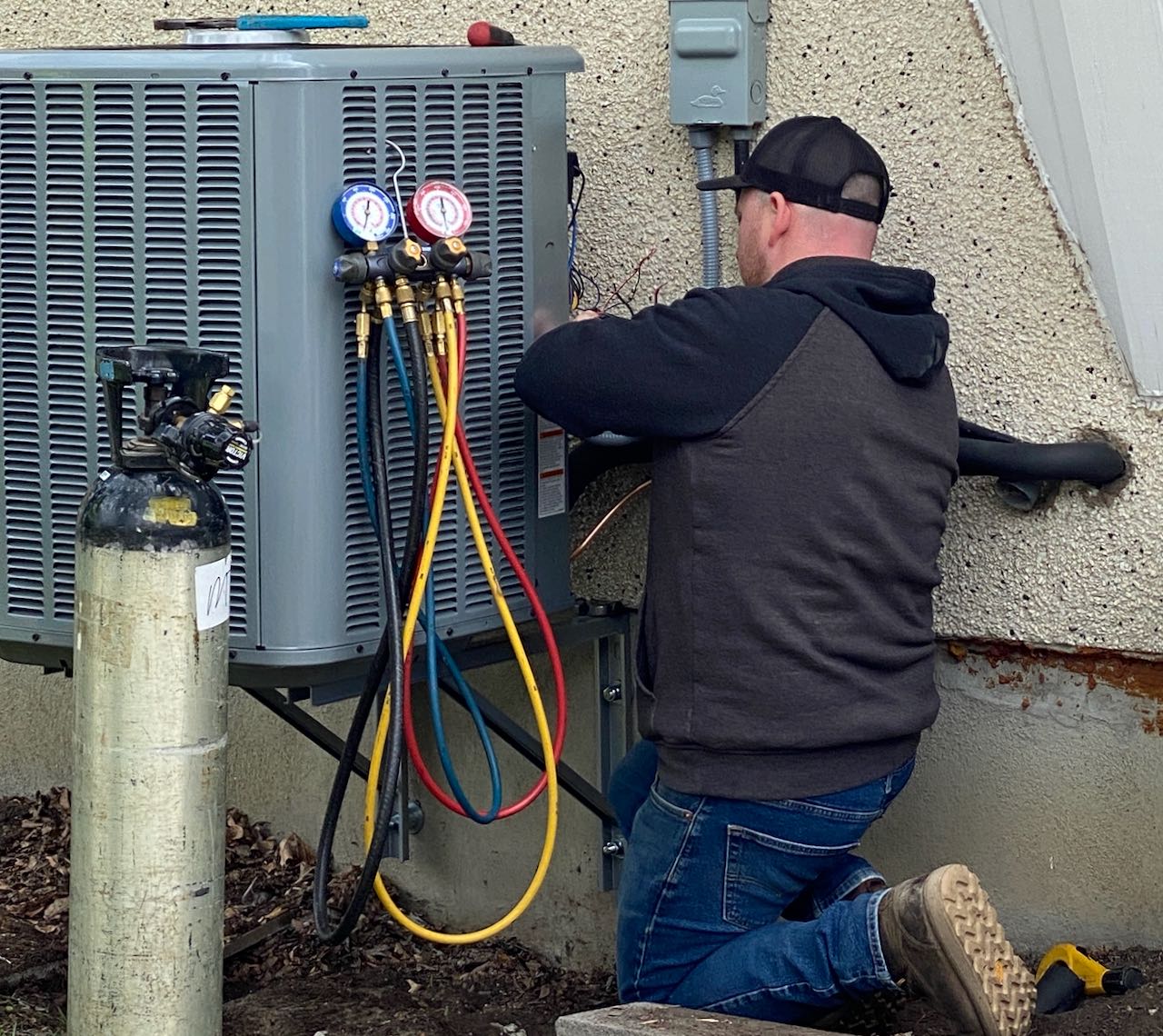
T&C Furnace Precision Tune-Up
- Check operation of thermostat including calibration
- Perform carbon monoxide test and record readings
- Inspect venting for rust and leakage
- Test all safety controls
- Check combustion and ventilation air
- Clean burners and pilot, Adjust for proper combustion
- Clean flame sensor and record flame signal
- Check all gas fittings on valve train for leaks
- Clean and flush condensate lines, including pump
- Clean heat exchangers
- Remove and clean blower
- Perform temperature rise on heat exchanger
- Clean or replace standard air filters
- Lubricate motors as required
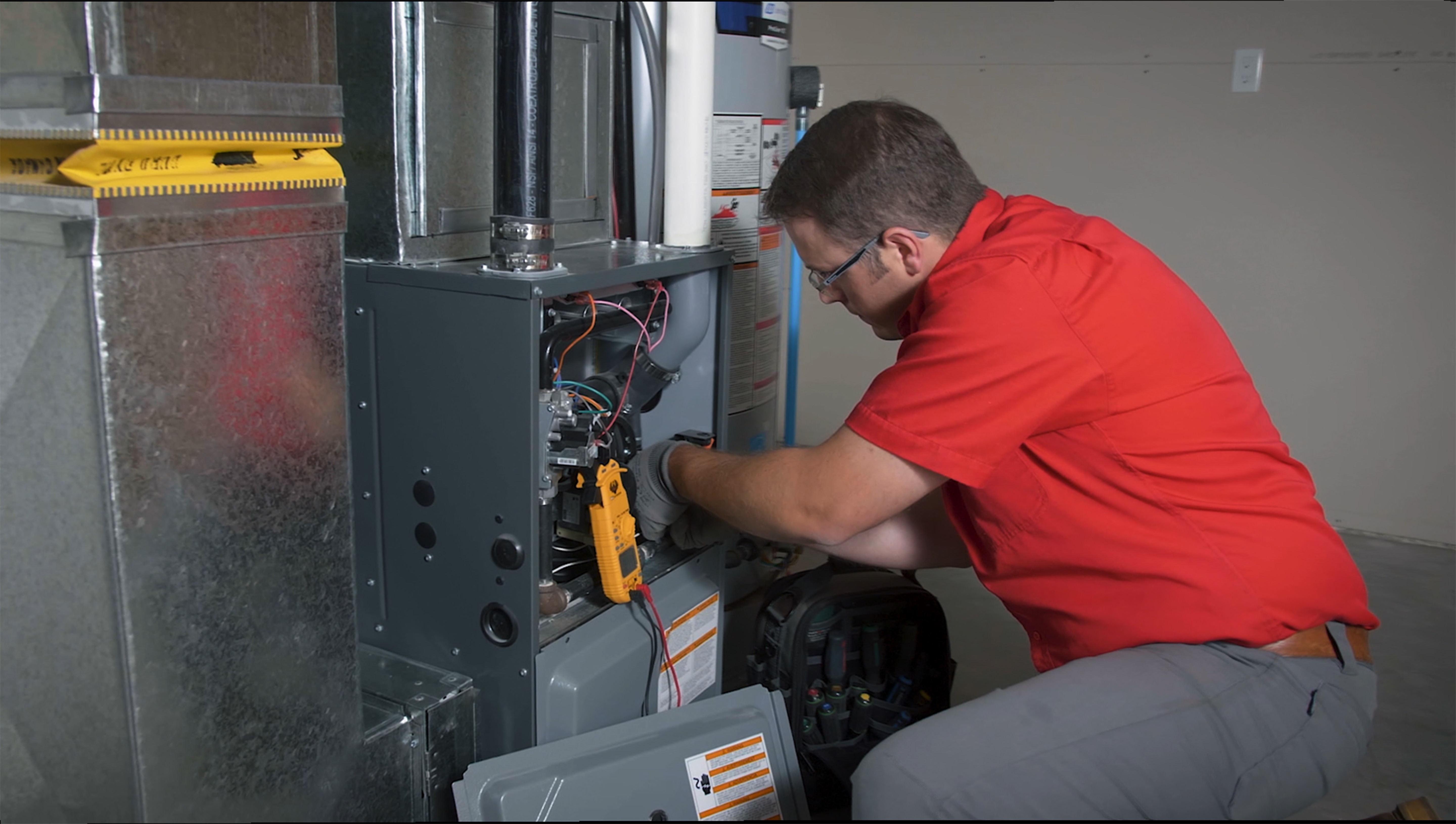
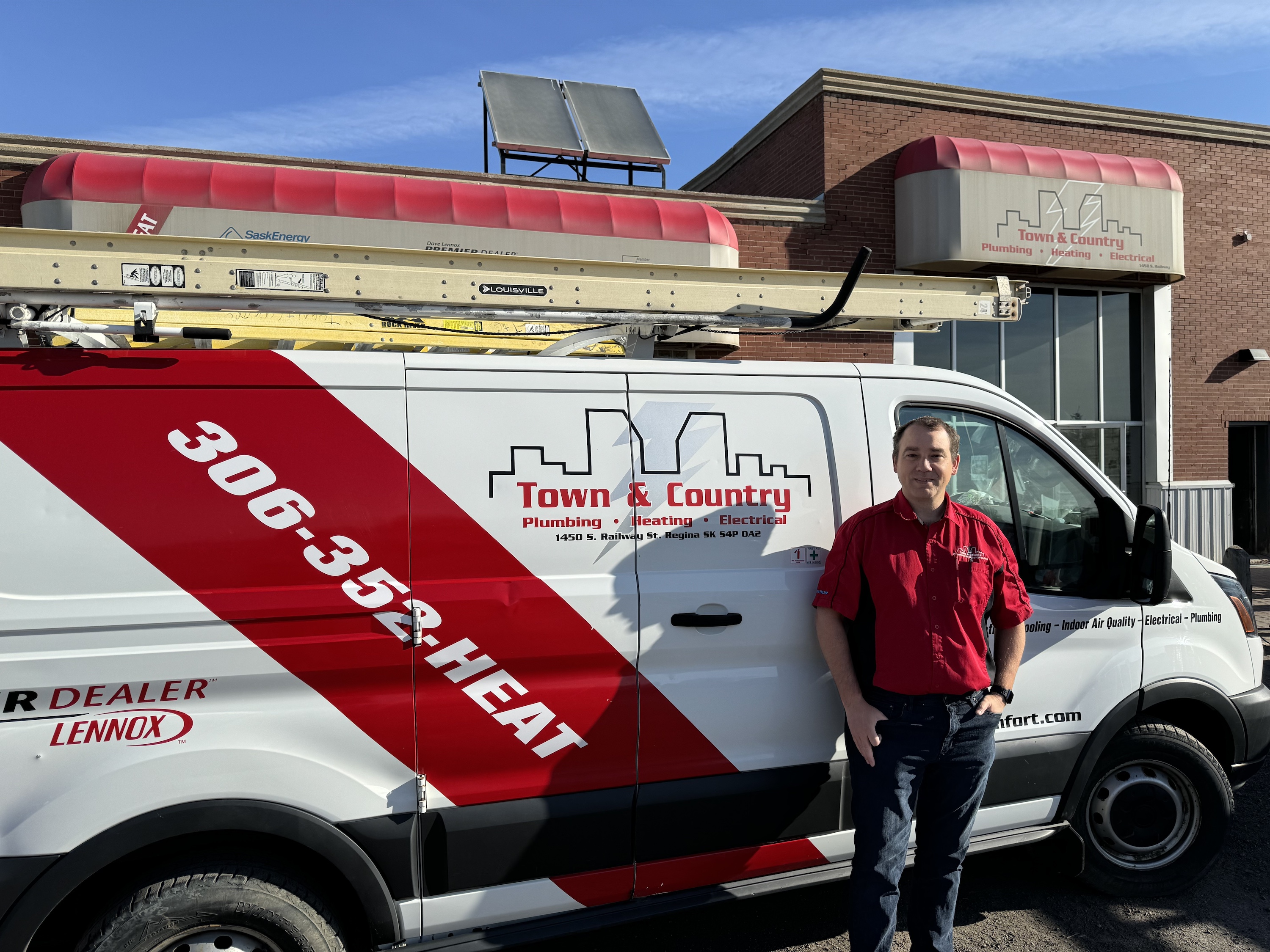
T&C Boiler Precision Tune-Up
- Check operation of thermostat including calibration
- Test all safety controls
- Inspect venting for rust and leakage
- Clear burners and pilot, adjust for proper combustion
- Clean flame sensors and record reading
- Perform carbon monoxide testing on ambient air in the boiler room
- Inspect fire bricks and insulation
- Check all gas fittings on valve train for leaks
- Examine heat exchanger and combustion chamber
- Lubricate pump and motors
- Check condition and operation of expansion tank
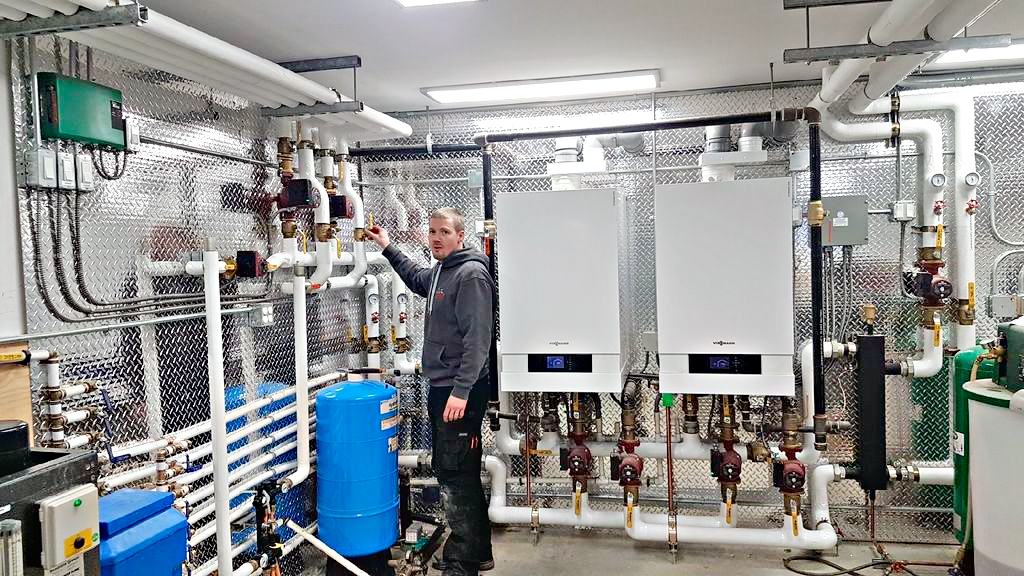
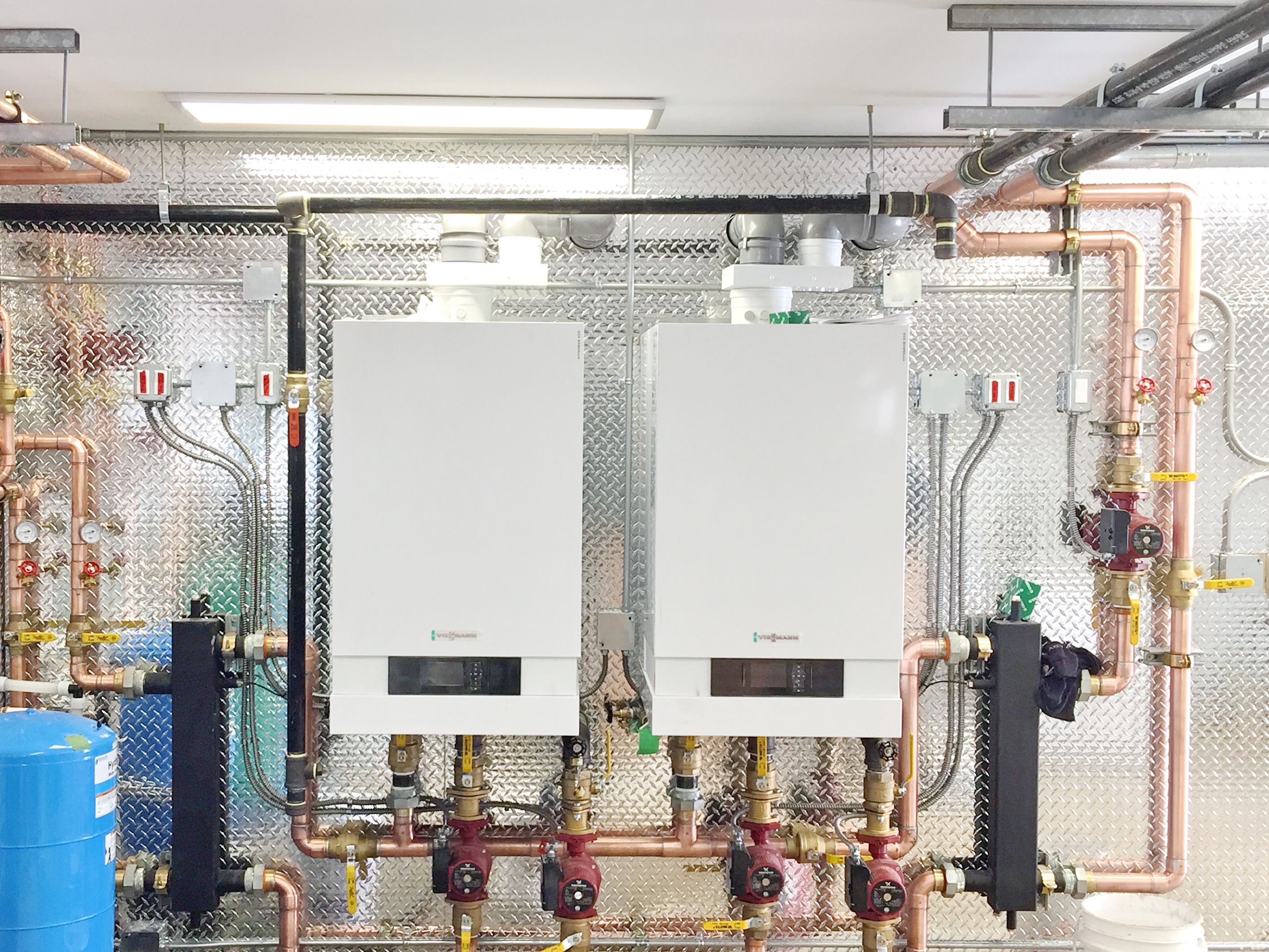
Boiler Maintenance
Hot water heating systems require some maintenance, including draining the boiler and venting the radiators to ensure things are running efficiently.
- Lubricate the circulating pump motor on your boiler. Use a lightweight oil, as per your boiler owner’s manual and pour it in the oil cup.
- In the fall and throughout the season of use, you need to vent or purge radiators if they do not already have an automatic purge system.
- After purging make sure pressure levels are ok. You can find out what pressure level is recommended by the boiler manufacturer in the operating manual. You then let out the air in each convector, if needed, until the pressure is at the recommended operating level.
Hot Water Tank Maintenance
Establish a maintenance program to extend the life of your water heater. Most water heater failures are due to lime/sediment buildup, excessive pressure or corrosion.
To Reduce Lime/Sediment Buildup (Every 6 Months):
- Drain the tank through the drain valve until the water is clear.
- Inspect the tank for lime or sediment deposit either through the nipples or through the clean-out hole.
- Remove lime, scale or sediment using care not to damage the glass lining of the tank.
- Inspect the anode rod and replace as needed. Anode rods are designed to attract corrosive elements in the water and thereby diminish corrosion of your tank.
To Assure Relief Valve Operation (Every 12 Months):
Manually open the relief valve to flush any lime deposits that may have developed.
Caution! Water can be extremely hot. Make certain the seat closes properly. Let it snap shut.


